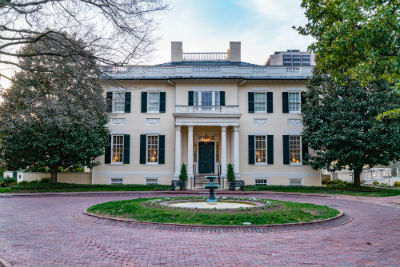
Remember how Gov. Glenn Youngkin ran and won election last year promising to ban public schools from teaching what he called “inherently divisive concepts”?
Keep that in mind as you digest the news that tours of the Executive Mansion are excluding the history of the enslaved workers who built, lived and worked at the home before the Civil War that had been included on the tours when Youngkin’s predecessor, Democrat Ralph Northam, was in office.
The reason, according to a statement from First Lady Suzanne Youngkin: the focus at the outset of the Youngkin administration with respect to the tours has been on overhauling the art displayed on the walls.
“When we stepped in, we saw glaring voids in the stories being told through art and as such, we now feature works from nine museum partners celebrating every region of the Commonwealth as well as special pieces from black, Indian and immigrant Virginians,” the First Lady said in the statement.
That’s not enough, according to Gayle Jessup White, the chair of the Executive Mansion’s descendants committee, an author who works at Monticello and was appointed to the committee by Northam.
“The descendants feel very strongly that these stories must be included,” White said.
Georgia Esposito, the director of the Executive Mansion, defended the Youngkin administration at a meeting of the Citizens’ Advisory Council on Furnishing and Interpreting the Executive Mansion.
Esposito said the public tours given to visitors under the Youngkin administration are the same as those that were given to the public under his predecessors.
Which is technically true, but the former chief of staff to former First Lady Pamela Northam, David Cary, said the Northam administration had updated the tour during the COVID-19 pandemic to include the stories of the enslaved laborers who built, lived and worked at the home, and the updated tour was given to school groups during private visits that had been arranged in advance.
Looking at the scorecard, then, we have two reasons for the stories of enslaved laborers not being included on the tours – the one about how the tours supposedly hadn’t been updated, another that they had been, to include more art.
White, speaking on behalf of the descendants of the enslaved laborers, urged the governor to update the tour, saying leaving out the stories of the enslaved laborers is out of step with the approach of other major historical sites to this history.
“There’s not a single tour that goes on at Monticello that does not include some history, some background, about the enslaved people, and that should be the case here,” White said.










